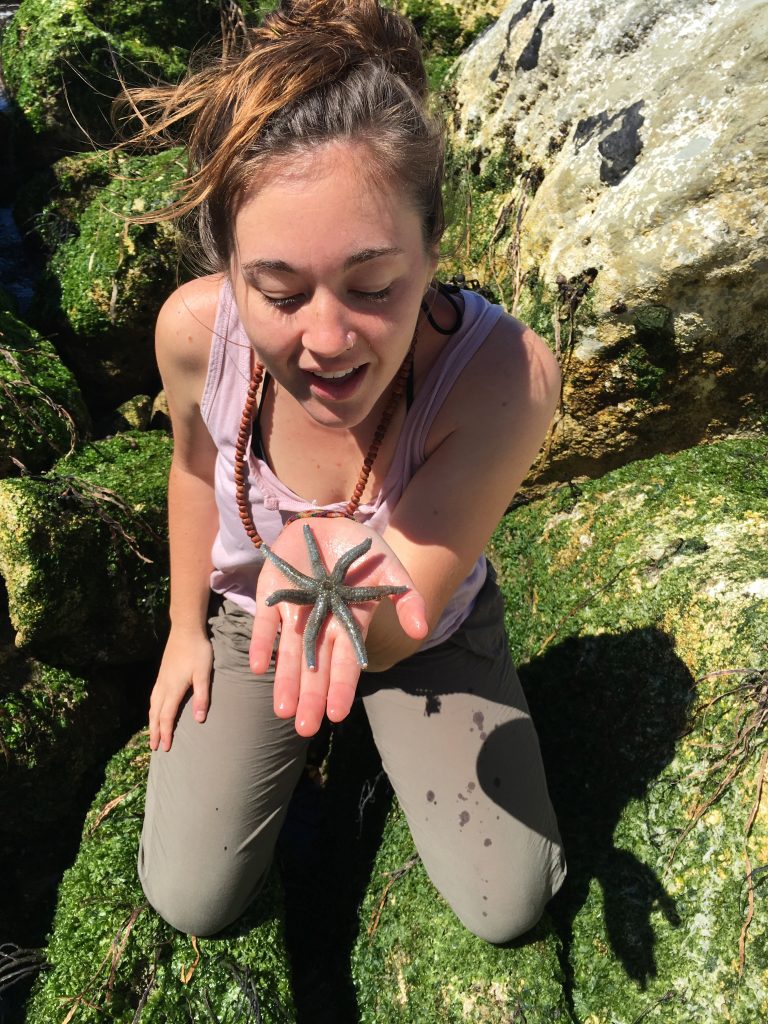This past spring semester I studied abroad in New Zealand with Creation Care Study Program (CCSP). Although studying abroad is a classic college experience for many students, this semester was different from a typical study abroad program. I lived on the South Island of New Zealand in a house with 19 other students, in a town where one can surf, kayak with dolphins, visit a seal colony, pick a kiwi off of a vine, and climb a snow capped mountain all in one day (if you’re feeling particularly ambitious). Suddenly my college life, which had been marked by high intensity studying and rushing from place to place while spilling coffee on myself, changed pace. Instead of frantically searching my pockets for quarters to feed the washing machine, I found myself learning how to do laundry in the backyard by rubbing my clothes on a washboard that even my grandma might consider old fashioned. My crunchy-granola dreams came true as I found myself living in a vegetarian household where hummus was made fresh weekly, neighbors knocked on the door to leave us eggs from their chickens, and multiple members of our community did not wash their hair (I will not reveal if one of them was me). The front porch was scattered with Birkenstocks and Chacos and our library was well-stocked with plant identification field guides and biographies of social justice activists.
Most importantly, my time at CCSP was marked by experiential education. A lot of what I learned was through daily life, whether backpacking through the mountains and forests of New Zealand, swimming and snorkeling, gardening, or doing chores. There is the age old question that perhaps all education should seek to answer: What does it mean to live a good life? Although I’ve spent a lot of time in college grappling intellectually with what it would look like, my time in New Zealand began to fill out the skeleton of the concept of the good life with flesh and blood. I think that the physical experiences of life are some of the most important ways that we learn.
I learned about creation care through living in intentional community. Ultimately the time that I spent with the CCSP community was marked by the giving of each other’s full presence to one another. This came about through discussing philosophy in class, playing frisbee and doing handstands at the park, diving into the ocean multiple times a week, baking treats to share, making art, or going on walks. I became convinced that one of the best things we can give each other as humans is our full presence and attention. It is crucial that when we spend time with people we make sure we are all there, whether washing dishes next to someone, hanging laundry, or eating a meal. This intentionality will begin to overflow into other areas of our lives, which is how we can begin to be engaged citizens and planet dwellers. Living in intentional community taught me that societal and global change begins in the home, within our closest relationships and our daily rhythms of life. I think that if we are to take care of the earth, our actions should flow from communities held together by love and shared life.
Some other things I learned from living in New Zealand were practical, sustainable habits such as eating much less meat, dealing differently with waste by diverting as much as possible through recycling and composting, biking instead of driving, and doing laundry and dishes by hand then letting them air dry. I realize that, yes, it is unlikely that my personal choice to bring my reusable mug instead of using disposable plastic is going to transform America into a zero-waste society and clear the rivers and air. However, maybe the best thing that we can do in response to the wounds of the world is to live our lives with moral integrity, even if it goes against the grain of everything around us and feels futile. It is possible that our actions will not change the world, but rather that we will change. Our practices and habits shape us morally. Although we do hope our actions will contribute to changing society and culture, our attempts to live well must not only be motivated by that. The Christian hope allows us to work towards a vision of the world that we may not see realized within our lives.
These are only a few of the lessons I learned about living an abundant, good life while I was in New Zealand. It is a life that is filled with wonder and joy at the beauty of creation. If you are looking for an “alternative” study abroad experience — perhaps looking for a program that will teach you about fern spores, indigenous Maori music, but also traditional Christian liturgy and how to make ginger beer –I highly recommend CCSP.



